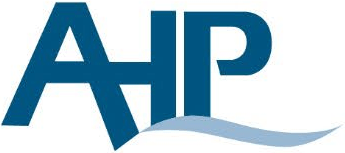
Expanding Mobile Crisis Care and Justice Intervention Support
The Crisis Care Mobile Units (CCMU) program supports statewide mobile crisis response efforts, while the Behavioral Health Justice Intervention Services (BHJIS) program supports critical intervention for individuals prior to criminal justice involvement with funding from the Behavioral Health Continuum Infrastructure Program (BHCIP), Coronavirus Response and Relief Supplemental Appropriations Act (CRRSAA), and Community Mental Health Services Block Grant (MHBG).
For over 35 years, Advocates for Human Potential, Inc. (AHP) has been improving health and human services systems of care and business operations to help organizations and individuals reach their full potential.
CHALLENGE
The Memphis Model, The Six-Step Crisis Intervention Model, and other traditional response methodologies to behavioral health (BH) crises have been largely ineffective, resulting in individuals with behavioral concerns languishing in jails, prisons, and high-cost hospital beds. Lack of BH informed training for first responders has increased the vulnerability of those in a state of behavioral crisis to violence; for example, although people with SMI account for only 3% of violent crime,[i] 25% of individuals killed in interactions with law enforcement have an SMI, who similarly are 16 times more likely than the general population to experience violence in interactions with law enforcement officials.[ii]. The need for better coordination between responders, and diversion from emergency rooms, hospitals, and jails to community-based services can be seen in the rate of emergency Medical Treatment and Labor Act (EMTALA) violations and worsening of SMI symptoms and retraumatization in prison exacerbated by insufficient access to services and qualified professionals who are equipped with adequate BH training and resources.
SOLUTION
In partnership with our client, the California Department of Health Care Services (DHCS), AHP oversees, manages, and provides technical assistance for the implementation of the CCMU and BHJIS programs. These programs empower counties and tribes to develop custom care models that provide mobile BH crisis response that dovetails with local 911 and 988 call centers. The Substance Abuse and Mental Health Services Administration (SAMHSA) included mobile crisis response models as their preferred model in its 2020 National Guidelines for Behavioral Health Crisis Care due to its increased efficacy compared to traditional models, even before being adapted to the needs of specific communities and populations [iii]. These funds may also be used for first-year implementation to embed BH clinicians and/or peers with law enforcement, emergency medical technicians (EMTs), and other first responders when responding to community situations. AHP helps innovate, plan, and implement program strategies, troubleshoot problems for clients and grantees, and empower collaboration among stakeholders to optimize the positive impact and reach of these important BH programs.
RESULTS
CCMU has awarded more than $185 million to 48 behavioral health authorities and 24 tribal entities. In the fourth quarter of 2023 alone, CCMU teams responded to 19,185 behavioral health crises. BHJIS allocated $25 million in funding and awarded 33 grants to improve collaborative BH crisis response and reduce justice system involvement; awardees include law enforcement agencies, nonprofit community-based organizations, and more.
[i] Arkowitz, H., & Lilienfeld, S. O. (2024, February 20). Deranged and dangerous: When do the emotionally disturbed resort to violence? Scientific American. https://www.scientificamerican.com/article/deranged-and-dangerous
[ii] The Treatment Advocacy Center. (2015). Overlooked in the Undercounted: The Role of Mental Illness in Fatal Law Enforcement Encounters. Retrieved from: https://www.treatmentadvocacycenter.org/storage/documents/overlooked-in-the-undercounted.pdf
[iii] Substance Abuse and Mental Health Services Administration. National guidelines for behavioral health crisis care—Best Practice Toolkit [Internet]; 2020. Retrieved from: https://www.samhsa.gov/find-help/implementing-behavioral-health-crisis-care
About Us
Advocates for Human Potential, Inc. (AHP) creates powerful solutions to improve health and human services systems. By partnering with the federal government, states, municipalities, healthcare systems, and nonprofits, we help people experiencing the greatest disadvantages lead full and productive lives. We are national leaders in training and technical assistance, research and evaluation, publishing, and dedicated consulting. On issues from workforce development to mental health, substance use disorders to housing and homelessness, we help our clients enhance behavioral health care through systems change. AHP was founded nearly 40 years ago to develop solutions for some of the biggest social infrastructure challenges across the nation. Our company has offices in metro Boston, Chicago, Los Angeles, Phoenix, and Tampa. Find out more at www.ahpnet.com.
For press inquiries, please contact newsroom@ahpnet.com.
